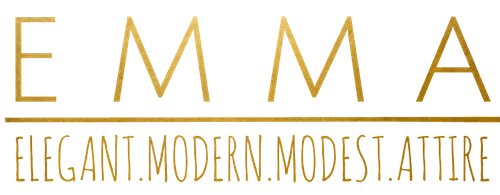Hijab Articles
Is Centrum Women’s Multivitamin Halal?
Although all people are prone to vitamin deficiency, women are more likely to suffer from it due to hormonal changes. That’s why it’s often essential to take multivitamins regularly.
The problem is, most multivitamins on the market don’t have a halal label, making it challenging for Muslim women to choose a suitable alternative.
One of the most popular multivitamins on the market is Centrum. Known for its high efficiency, it has a product lineup that includes vitamins for women, men, and children. But is Centrum women’s multivitamin halal? Let’s find out!
Is Centrum Women’s Multivitamin Halal?

Centrum Women’s Multivitamin, like any other product, is subject to scrutiny regarding its compliance with Islamic dietary laws, particularly halal requirements.
For a multivitamin to be considered halal, its ingredients must adhere to Islamic principles, ensuring they are ethically sourced and permissible.
The concern arises when multivitamins contain ingredients that are deemed haram, or forbidden, in Islamic dietary guidelines. These haram ingredients commonly include alcohol, animal-derived substances, or gelatin sourced from non-halal animals.
Centrum, a widely recognized brand in the world of health supplements, unfortunately, falls short of meeting halal standards. One of its ingredients is gelatin derived from pigs, which is a non-halal ingredient. Plus, it’s not halal-certified, meaning you can’t be sure about where its ingredients are sourced from.
What Makes a Multivitamin Halal?

Despite the huge amount of haram multivitamins on the market, there are plenty of halal offerings. To choose the right one, you need to learn what makes a multivitamin halal in the first place:
Lack of Gelatin
Gelatin, a common additive used for its thickening properties in various products ranging from cosmetics to food supplements, poses a challenge for adherents of Islamic dietary laws.
Conventional gelatin, often derived from collagen obtained from pigs, contradicts Islamic dietary principles, making it impermissible for consumption by Muslims.
In contrast, halal gelatin sourced from permissible sources such as bovine or fish aligns with Islamic dietary guidelines and is considered suitable for consumption.
For a multivitamin to be deemed halal, it must steer clear of gelatin sourced from non-halal animals. Any inclusion of such gelatin makes the product non-compliant with Islamic dietary standards, which means it’s unsuitable for consumption by Muslims.
No Alcohol Content
Another crucial aspect in defining the halal status of multivitamins is the absence of alcohol and its derivatives. In Islamic dietary laws, alcohol in any form, including ethanol or alcohol-based extracts, is prohibited.
Although alcohol derivatives are commonly used as solvents or preservatives in various consumer goods, their presence in consumable products makes them incompatible with Islamic dietary principles.
No Haram Food Dye
When evaluating the halal status of multivitamins, it’s essential to consider the presence of haram food dyes, such as carmine. Carmine, a red food dye derived from carminic acid, is frequently used to enhance the color intensity of various products, including packaging, printing materials, and cosmetics.
Traditionally sourced from the dried bodies of specific insects, the use of carmine raises concerns within Islamic dietary guidelines, which generally discourage the consumption of insects.
Despite this, Islamic scholars often argue that carmine undergoes a transformative process during extraction, rendering it permissible (halal) for consumption.
However, it’s always better to stay on the safe side, so if you’re not sure whether carmine is halal, avoiding it is the better option.
Being Cruelty-Free
Animal-derived components commonly found in supplements, such as collagen, amino acids, or certain vitamins, must be sourced ethically to meet halal standards.
For these ingredients to be considered halal, it is imperative that they originate from animals slaughtered in accordance with Islamic dietary regulations. If the product isn’t labeled as halal, its ingredients are likely not sourced ethically.
Products sourced from animals slaughtered lawfully, with proper adherence to Islamic dietary guidelines, are considered halal.
Halal Alternatives to Centrum
If you want a multivitamin that’s as efficient as Centrum but follows Islam’s dietary laws, here are halal alternatives:
Greenfield Nutritions – Halal Multivitamin with Minerals
Greenfield Nutritions offers a halal multivitamin with minerals to support overall health. It includes vitamins like B1 and B2 for energy, Vitamin A for skin health, and Vitamin C and Selenium for antioxidants.
There are also B-complex vitamins to aid in metabolism and Vitamin D to support bone health.
Noor Vegan Women’s Multivitamin
Noor Vegan Women’s Multivitamin supports women’s health, including during pregnancy and lactation. It’s certified halal by IFANCA.
The formula contains essential vitamins and minerals for overall well-being, including Vitamin B complex for energy and metabolism, zinc and antioxidants for immune function, and biotin for hair and skin health.
Folic acid and iron support blood health during pregnancy, while calcium promotes strong bones.
Final Thoughts
So, is Centrum women’s multivitamin halal?
No, it’s not halal-certified because it contains gelatin sourced from pigs, rendering it impermissible for Muslim consumers.
Luckily, though, there are plenty of halal alternatives on the market that boast the same components, including Noor Vegan Women’s Multivitamin and Halal Multivitamin by Greenfield Nutritions.

Read More
A Better Version Of Myself
6th year in my hijab. Hijab builds me, it protects me. Flash back, 6 years ago… I was afraid of [...]
6 Comments
Oct
Nesma Khedr’s Hijab Story
❤ الحمد لله الذى بنعمته تتم الصالحات …. قلعته بعد ١٦ سنه حجاب و لبسته تانى بعد ٨ شهور [...]
35 Comments
Sep
Greater Than All
As these very special 10 days of Dhul Hijja unfold, I’m intrigued to explore more of their hidden gifts sent [...]
11 Comments
Aug